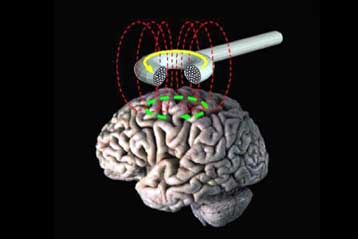R.A., for the needs of an assignment, decided to interview me, I have no idea why:)... She sent me some 19 questions, which put me in a big trouble of personal interpellation. For five days I kept asking myself the same questions, and the more lengthy answers I was typing in my mind, the deeper I was entering a continent of memory, unfinished business and a great big hesitation concerning the future tense, both simple and continuous. Somehow, I recalled 1993 and our "Sexuality Group" meetings (a reading and writing group) in Birmingham with Richard Johnson being the discreet hero of acrobatic balance.
En voila a small sample (in the end I picked only 15 questions to answer, not daring for more.)
1. How did you know that education is what you want to do in your life?
This is an insight that you gain both suddenly and in the long run. You complete an hour’s teaching and suddenly you just feel happy and satisfied. You take pride in having managed to complete your planning: to transfer the specific amount of information, to leave space for interaction with the students, to suggest further reading, to keep a positive spirit in class, balancing between the target (information-knowledge) and the condition (conversation, fun, getting more people involved with the subject, you and each other) without feeling pressed with side issues of authority. Concerning the insight that one gains in the long run, let me mention that at the University of Jordan I have been teaching the same more or less subjects for the last eleven semesters. To me, it has never been the same. I imagine myself translating the same book for 11 times and I experience vertigo. Even the third proof reading of a translated text starts getting heavy on me.
2. How do you view the process of teaching?
You know perhaps the fundamental concept of dialectics. How two different positions/subjects enter the process of dialogue (let us name them A and B), ready to prove, maintain, modify and change through interaction. It is a concept that appears early in Plato’s texts (4th century B.C.) and the manuals of Rhetoric. Here, I refer to Plato’s Dialogues, Socrates starts discussing serious issues with famous and less famous counterparts on the basis of openness and genuine respect. The success of his pedagogic approach would finally rely on forming a third position, which is neither A, nor B, not even A+B, but it is a brand new C>A+B. The process of teaching is one of the most delicate achievements of human mind. Normally we learn the basics by imitating, watching our parents, siblings, and our micro-environment. Teaching, especially academic teaching should be a step beyond this “natural” process. It can or, rather, should be the replacement of imitating an action with negotiating about the meaning. This is the difference between “doing” and “making sense of what we are doing”. Strangely enough though, you might have noticed that, to an alarming extent, societies and economies ask for practitioners instead of thinkers.
3. In your Greek I and II classes, you don't only teach language but you also try to familiarize you students with the culture as well. Why do you think this is important?
This approach developed more with time and it came along with my sense of pragmatism and my theoretical approach to language. I realized pretty early that two semesters of learning Greek language, in a program of three hours per week (which is the normal maximum for a student of U.J.) would not suffice in building up an adequate capacity of communication or the acquisition of an extensive and at the same time active vocabulary. Please note that English for example is taught in Jordanian schools, colleges and institutes for several years, the language is omnipresent in the daily life of an average student through TV, radio, songs or cinema and still the results are not always satisfactory. Just imagine what the results would be for a two-semester course, for a language that is not extensively used in Jordan (except within the relatively small Greek community in Jordan and among the Jordanian alumni of Greek Universities, doctors and engineers). The dilemma for the instructor is either to panic and to try to transfer few extra words and phrases or, to entrust the students with keys for understanding another culture, based on language but taking also the necessary detours in history, music, literature, and sociology. I believe that the second approach offers some advantages. First of all, it deals with language in its real dimensions: language is culture, insight, a treasury of time, difference and similarity. Secondly, by knowing more than some verbs and nouns, the student might feel comfortable to revisit this material, get more information, and personalize his/her learning experience. I find it sad anyway, for someone to know some French for instance, but not to know anything about the country, the history and the people who use the language.
4. Do you think people value education enough in Jordanian society?
Unfortunately Jordanian youth is more enthusiastic about cars, fancy looks, and the persistent daydreaming of personal paradises which would include villas, cars (again) and the exciting jealousy towards a tycoon. It is a massive and typical American soap-opera fantasy. Many boys feel shy to carry books or even allow a notebook to reveal that they are currently students. And several girls care more about their mobile and tiny little leather bags. I hope that fashion will soon dictate bigger shapes and models. I witness complaints about not finding good and up-to-date books, but this is simply not true. Not only there are few good bookshops in Amman, but I also see how prompt the managers of such places are in asking my advice and suggestions concerning new titles. I believe that the older generation values education more: their chances to get good academic instruction were slim and on many occasions this demanded an adventure abroad which they could not afford. I see parents investing most of their savings in the effort to provide their children with good education. This is daily life heroism. I definitely hope that soon the time will come for the young generation to realize that education is an absolute social value and not a temporary burden. And I wish that all these talents, skills and inherited kindness that I see around, will be invested in picking the suitable specialization (according to the character, the gradually built-‘nature’ of each one) and developing it into a real passion. Only people who find a positive outlet for their creativity and carve the path to communicate their dreams can work wonders and push their society one step forward. Such people inspire others and, eventually, push academia to produce more, and to replace the ivory tower concept with a more pleasurable one.
5. How would you describe your experience in Jordan?
It has been an experience that helps me a lot. I use the present tense because the process is on-going and dynamic. I have not experienced any kind of cultural shock while being in Jordan. By observing the details in behaviors, by asking, reading and learning, I understood better this part of the world, the historical process of transformation, and dealing with a glorious and heavy past under the constellation of contemporary circumstances. The question of transformation has been answered also in various ways by the Greek nation, policy-makers and intellectuals during the last 150 years and with similar features. How does one make sense of him/herself during the transitional period of westernization? What is to be maintained? How does it feel to be the object of orientalist approaches which affect your way of making sense of it all? How does one deal with the refugee identity, the traumatic memory of loss and the pragmatism of “life carries on”? And what about this old, magical, calligraphic, poetic and difficult language? What do you make out of it? You see, my Jordanian experience is an experience of question marks. It is also an experience of faces (people who are dear to me), of houses that they opened the front door for me and made me feel they are homes.
6. What do you like most about Jordan?
The genuine people I have met; and those out of them who honor me by being my friends. I would have chosen them in any geographical setting. I also like being in a taxi listening successively to patriotic songs, Fairooz and Umm Kalthum, dedicated by some Fadi to his schoolmates, by Abu Eyas to his son who studies in Irbed and by some old lady to her family abroad.
7.  Who is the main influence in your life? Why?
Who is the main influence in your life? Why?
Nobody has influenced me more than Cavafy, the Alexandrian Greek poet (1863-1933). His work was a strong arm that embraced me on the right moment. Since my adolescence (I mean for the last twenty five years almost) he has been my most stable companion. Cavafy broke in me the mirror of that so called and so much celebrated “simplicity”. The way he negotiates with the notions of memory and identity, and the way he implements his aesthetics have been training me in a worldview that possesses many features of post-structuralism. In this world, a world that stands beyond “simple” binary models, one never graduates, never has the final ‘summary-conclusion’ part typed; so one is allowed to remain playful and wondering. Perhaps, to put it this way, I retrospectively justify the reprimand of the Egyptian priest to Herodotus “Greeks, you remain children indefinitely”. Enshallah.
8. What is one important thing you would like to accomplish in the future?
Writing “it” all down, this would be my most far reaching accomplishment. By “it” I mean the numerous question marks I have gathered (and you see that they are a bit more than few), the instances and the periods, the tree and the forest.Labels: Future tense, On Self, Πολιτική του Εαυτού
 They found the solution to that: A new device of electromagnetic fields will treat you good... It is specially designed for depression and what is does it is called TMS (Trans-cranial Magnetic Stimulation). Hopefully soon they will replace the magnetic security-check gates with it. The security checks are just a ceremony aiming at smiling to the guard and receiving his smile back. But just think what a boost in profit it would be for people entering the Malls with a nice trans cranial push of happiness. Somebody should suggest this idea to the municipality. They are good in business, I think.
They found the solution to that: A new device of electromagnetic fields will treat you good... It is specially designed for depression and what is does it is called TMS (Trans-cranial Magnetic Stimulation). Hopefully soon they will replace the magnetic security-check gates with it. The security checks are just a ceremony aiming at smiling to the guard and receiving his smile back. But just think what a boost in profit it would be for people entering the Malls with a nice trans cranial push of happiness. Somebody should suggest this idea to the municipality. They are good in business, I think.












